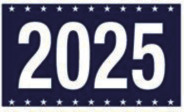Cotton Bowl will be 31st bowl for Rebels
By Staff
FIELD CHUCKLES Ole Miss coach David Cutcliffe gets a laugh from running back Brandon Jacobs (27) during team practice in University Park, Texas, on Sunday. Ole Miss will face Oklahoma State in the Cotton Bowl on Thursday. AP photo
By Will Bardwell / staff writer
December 29, 2003
For all the glamorous parallels between the careers of Archie and Eli Manning, 16th-ranked Ole Miss' senior quarterback is glad concede one.
Before the Rebels' last January bowl appearance in the 1991 Gator Bowl, their previous New Year's contest was Archie Manning's final game the 1971 Gator Bowl, in which Manning and his broken left arm were pounded by Auburn in a 35-28 loss.
Unlike his father, though, Eli's appearance in the Cotton Bowl on Friday will be just his second bowl appearance after the 2002 Independence Bowl. The elder Manning had three postseason games the 1968 Liberty Bowl, the 1970 Sugar Bowl and his finale in the Gator Bowl.
Much as his father did, though, Eli has helped Ole Miss enjoy a period in which bowl games are almost commonplace. This season marks the sixth in seven years in which the Rebels have earned a bowl bid. It is the longest such streak for Ole Miss since it went to bowls in 15 straight years from 1957-1971.
Though the current postseason stretch has provided wins over big-name opponents such as Oklahoma and Nebraska, Friday's appearance in the Cotton Bowl will be just the third January bowl appearance in 33 years for the Rebels. It will also be the third trip ever to the Cotton Bowl for Ole Miss, and the school's first since 1962.
Ole Miss' first appearance at the Cotton Bowl came in 1956, when quarterback Eagle Day led the Rebels to a 14-13 comeback win against TCU for Ole Miss' first victory in a prominent bowl game.
Friday's contest against No. 21 Oklahoma State will also be the 31st bowl appearance in Ole Miss history, which ties the Rebels with Georgia Tech for 14th among all college football programs.
Recent bowl games have provided several memorable moments in the Rebels' history. The 1997 Motor City Bowl was the first bowl game for Ole Miss since the 1992 Liberty Bowl and an important accomplishment for a program crippled by NCAA sanctions in 1994. Ole Miss downed Marshall, led by future NFL standout Randy Moss, in a 34-31 shootout.
The Rebels received another bowl bid in the 1998 season, this time to the Independence Bowl. The game was the first for current head coach David Cutcliffe, who was hired when Tommy Tuberville jumped ship for Auburn. After quickly throwing together a staff, Cutcliffe's Rebels pulled off one of the biggest upsets of the bowl season with a 35-18 win over Texas Tech.
It was the first of three Independence Bowls for Ole Miss over the next five years, as the Rebels also went to Shreveport, La., for wins over Oklahoma in 1999 and Nebraska in 2002.
The 27-25 win over the Sooners on Dec. 31, 1999, was capped by a 39-yard field goal by Les Binkley as time expired, giving the Rebels the last college football victory of the 1900s. Binkley also became the last college football player to score before the end of the 1900s.
Ole Miss was the last team to beat Oklahoma before the Sooners' national championship the following year.
The 2000 Music City Bowl in Nashville, Tenn. Gave the Rebels their first bowl loss since 1991, but marked the passing of the torch to future Heisman Trophy finalist Eli Manning. Trailing 49-16 in the fourth quarter, Manning replaced Romaro Miller and made three scoring drives before Ole Miss lost 49-38.
A 27-23 win last year over Nebraska in another Independence Bowl helped salvage a disappointing season for Ole Miss, in which the Rebels lost five straight after starting 6-1. The victory over the Cornhuskers gave Ole Miss a 7-6 record and sent Nebraska to 7-7 its first non-winning record in 30 years.








